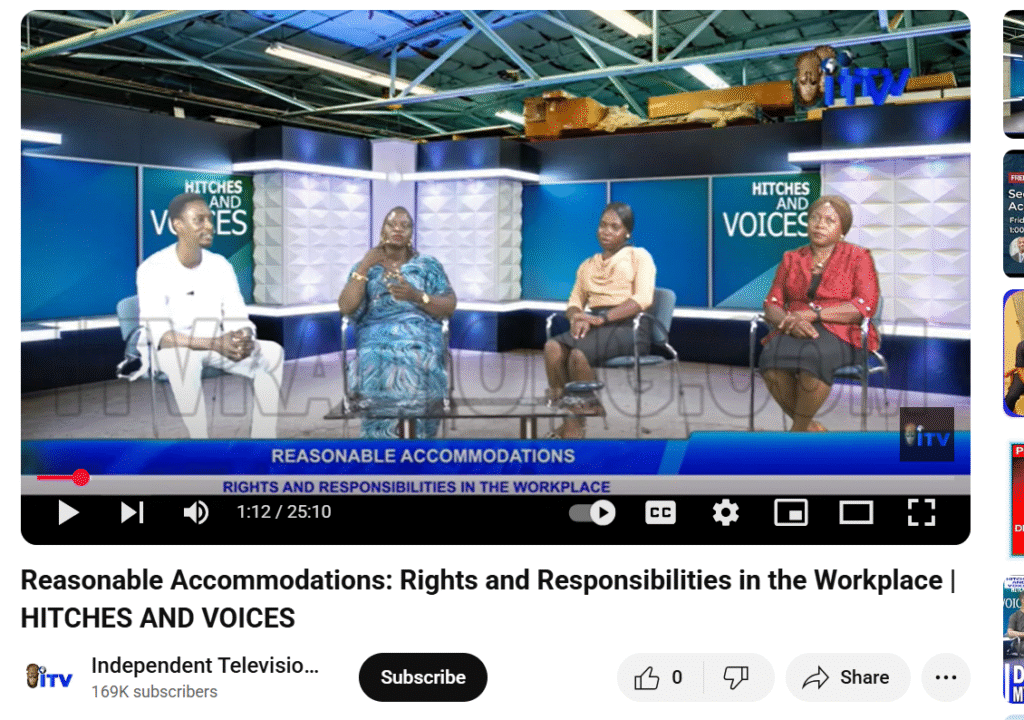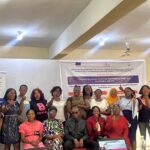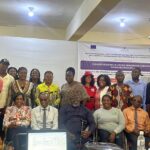
On Friday, May 9, 2025, Hitches and Voices on ITV turned its spotlight on a critical yet often overlooked issue: responsible accommodation in the workplace. This principle, enshrined in the Edo State Disability Law, is a vital safeguard that ensures persons with disabilities (PWDs) are not only granted employment opportunities but are also supported to thrive in their chosen professions.
The guest for this edition, Abiola Igaga, former President of CONGO’s, gave a compelling analysis of what responsible accommodation truly means, breaking it down beyond legal jargon into everyday practices that can transform workplaces into inclusive spaces.
Ms. Igaga made it clear that responsible accommodation is not a charitable gesture or an act of pity, but a right guaranteed under the law. Employers, therefore, carry both a legal and moral obligation to ensure their workplaces are not only physically accessible but also psychologically and socially enabling. This includes practical adjustments like ramps for wheelchair users, widened doorways for mobility aids, sliding windows for easier use, and handrails to aid those with visual impairments. In high-rise buildings, she stressed, the installation of lifts is not negotiable — equal access cannot be compromised.
However, responsible accommodation goes beyond physical structures. It extends to workplace policies and attitudes. For instance, providing flexible work hours for employees with certain health conditions, ensuring that communication materials are available in accessible formats such as Braille or audio, and training staff on disability etiquette are equally important measures. These efforts, Ms. Igaga explained, create an atmosphere where PWDs feel valued not as exceptions, but as integral members of the workforce.
While some employers may view these changes as financially burdensome, Ms. Igaga argued that the returns on inclusivity far outweigh the costs. A workplace that embraces diversity benefits from increased innovation, employee loyalty, and broader perspectives. Moreover, by aligning with the Edo State Disability Law, organizations not only avoid legal penalties but also strengthen their reputation as socially responsible and forward-thinking institutions.
Beyond the workplace, Ms. Igaga called for wider societal awareness. She emphasized that advocacy for disability rights should not rest solely on the shoulders of disability-focused organizations. Instead, it should be a collective responsibility. Government officials, by enforcing existing laws; religious leaders, by shaping mindsets through sermons and community teachings; employers, by modeling inclusivity in practice; and the general public, by challenging stereotypes and extending respect — all have crucial roles to play.
She was, however, careful to note a balance between rights and humanity. While accommodations are a legal entitlement that must be demanded, she encouraged approaching those who remain unaware with patience, conscience, and empathy. Many employers, she explained, do not deliberately exclude PWDs but operate from a place of ignorance. Education, dialogue, and collaboration therefore become essential tools in bridging this gap.
In closing, Ms. Igaga’s insights underscored a powerful message: responsible accommodation is not just about compliance; it is about justice, equity, and the recognition of human dignity. Creating inclusive workplaces is not the responsibility of one group alone but a shared mission — one that, when embraced, enriches not just PWDs but the entire society.








